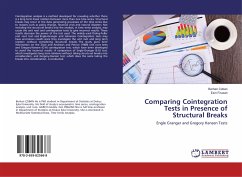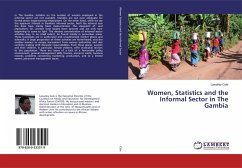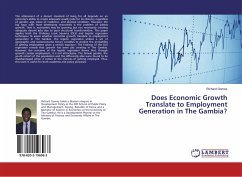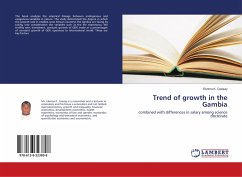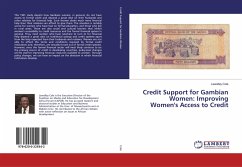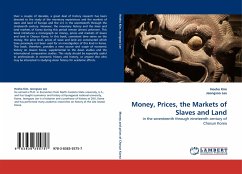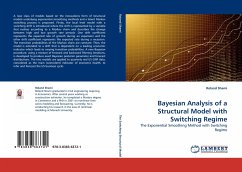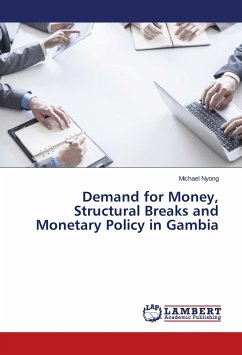
Demand for Money, Structural Breaks and Monetary Policy in Gambia
Versandkostenfrei!
Versandfertig in 6-10 Tagen
24,99 €
inkl. MwSt.

PAYBACK Punkte
12 °P sammeln!
One of the greatest challenges facing developing countries is that of the adoption of appropriate macroeconomic policies to stabilize their economies and promote non-inflationary growth with reduction in poverty levels. Policy challenges seem to be more severe in the area of monetary and fiscal policy and their coordination. This book provides empirical evidence of the nature of monetary policy in the Gambia and the appropriateness of the current monetary policy framework. Using more recent data series and econometric methodology rooted in unit root testing and cointegration in the presence of...
One of the greatest challenges facing developing countries is that of the adoption of appropriate macroeconomic policies to stabilize their economies and promote non-inflationary growth with reduction in poverty levels. Policy challenges seem to be more severe in the area of monetary and fiscal policy and their coordination. This book provides empirical evidence of the nature of monetary policy in the Gambia and the appropriateness of the current monetary policy framework. Using more recent data series and econometric methodology rooted in unit root testing and cointegration in the presence of endogenous structural breaks the estimates of the money demand function both in the short run and long-run yield very useful and interesting results. The findings indicate that contrary to the current monetary targeting by the Central Bank of The Gambia, an appropriate monetary policy should be the adoption of a more flexible combination of elements of inflation targeting and monetary supply target framework to maintain price stability and promote non-inflationary economic growth.



